All on




Save 70% on your
periodontitis treatment
Surgeons meet top
European standards
Quickly access treatment
with short waits


Enjoy up to 70% savings on your periodontitis treatment
Up to 70% savings while ensuring top-quality care.
Experience Turkey’s finest surgeons’ unmatched expertise.
Comprehensive support in English for a seamless experience.
Faster access than in the UK, speeding up your treatment journey.
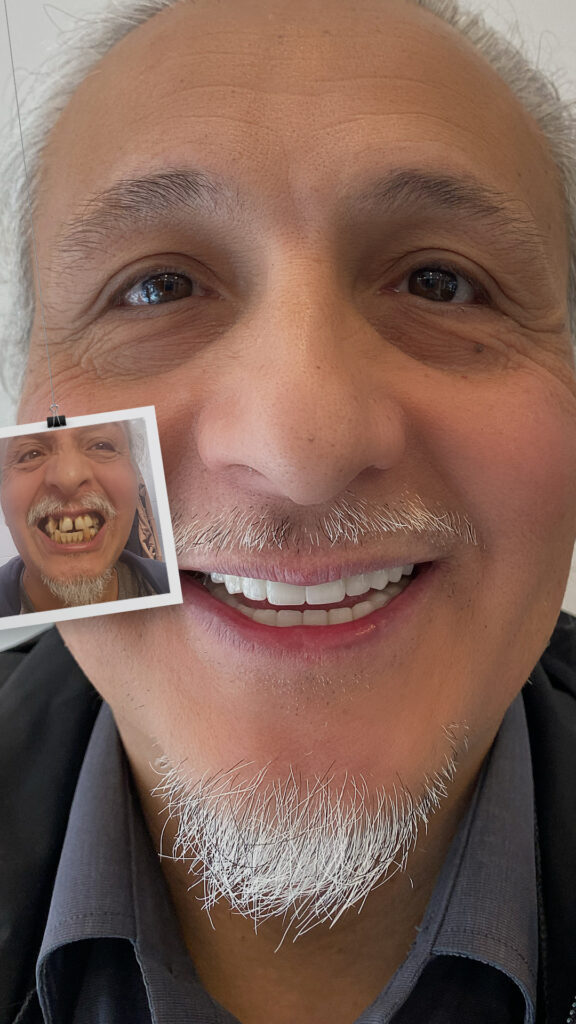
All-on-6 Implants
in Turkey
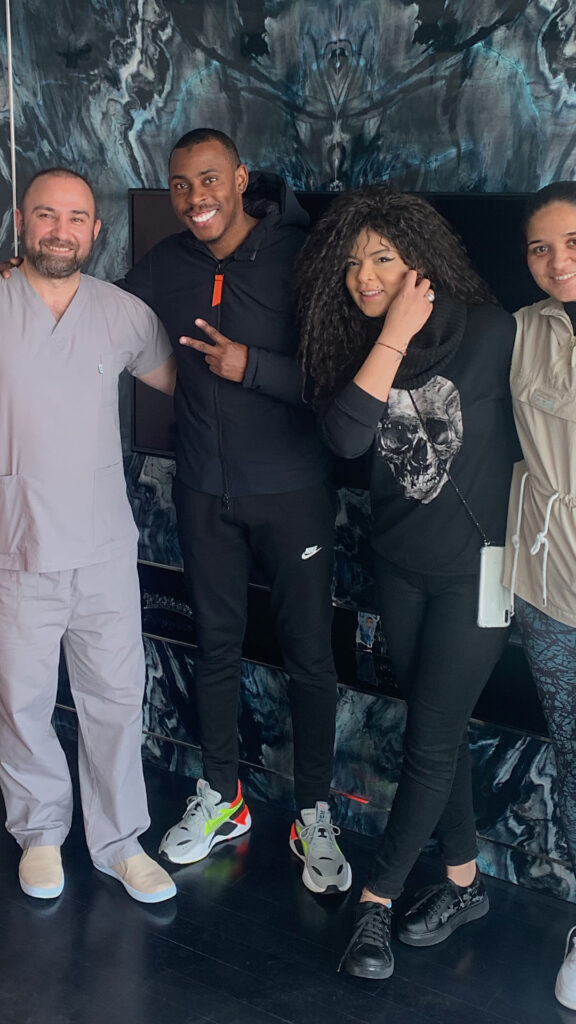
All-on-6 Implants
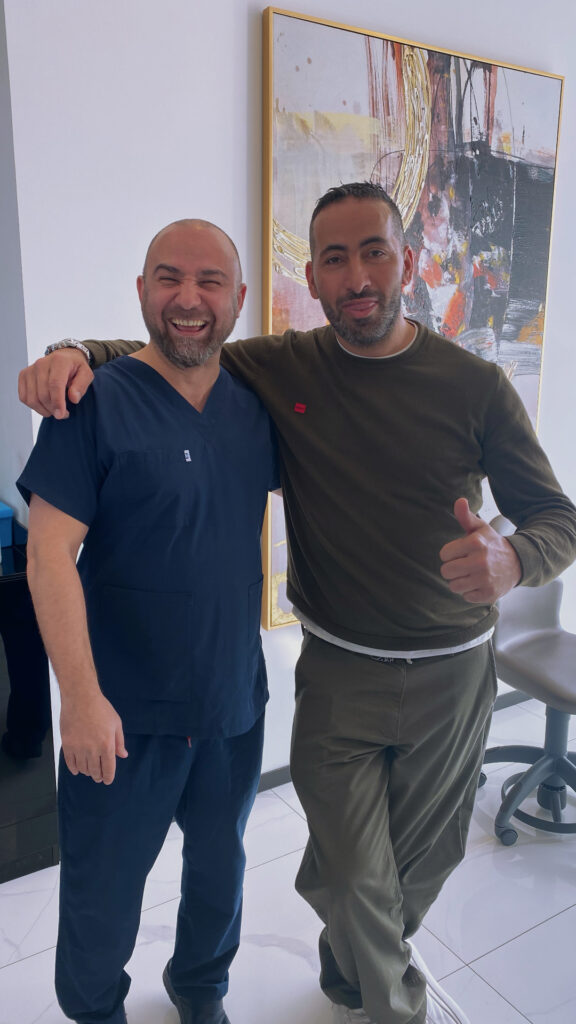
All-on-6 Implants
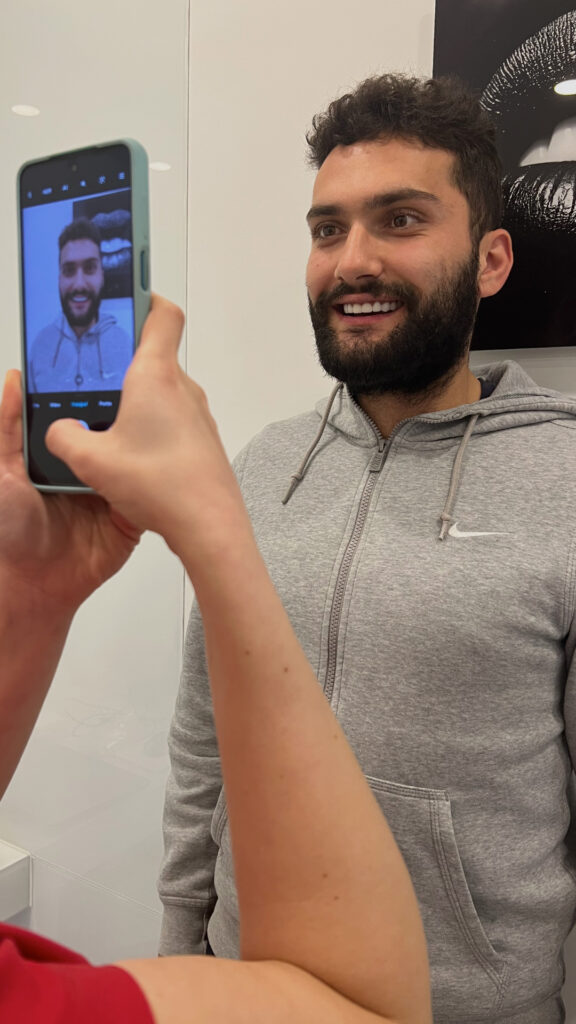
All-on-6 Implants
in Turkey

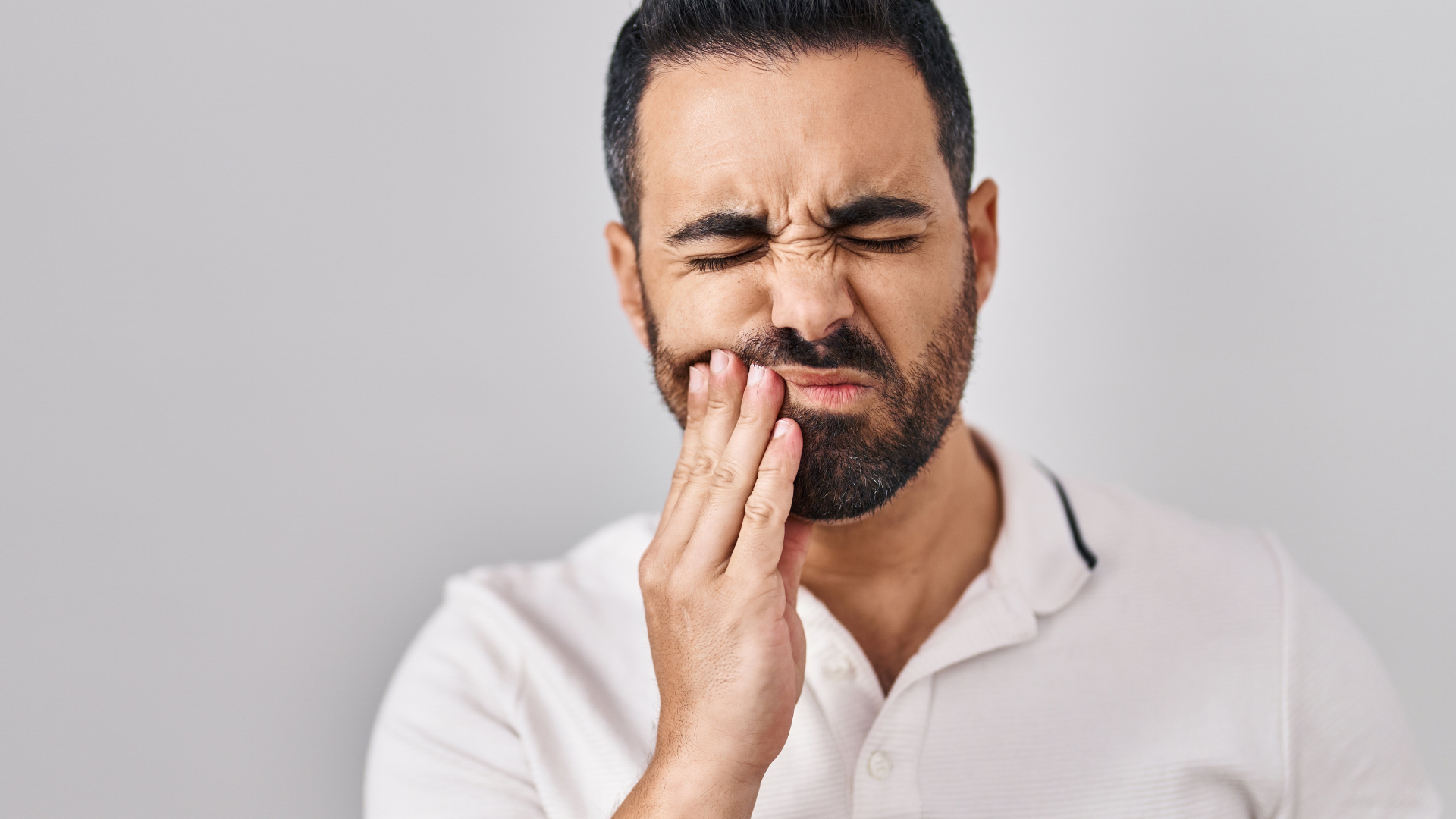
Periodontitis is a real public health problem, one of the ailments that most affects human dental health. Yet it is one of the least well-known. Inflamed gums hollowed out around the teeth, persistent plaque and tartar clinging to the base of the teeth, painful chewing: as a result of poor dental hygiene or badly treated cavities, periodontitis lurks, gnawing away at the roots right down to the bone. According to the French Dental Association, one in two French people is affected by periodontal disease. According to researchers, apical periodontitis “represents a major public health problem that is largely underestimated in many countries”.
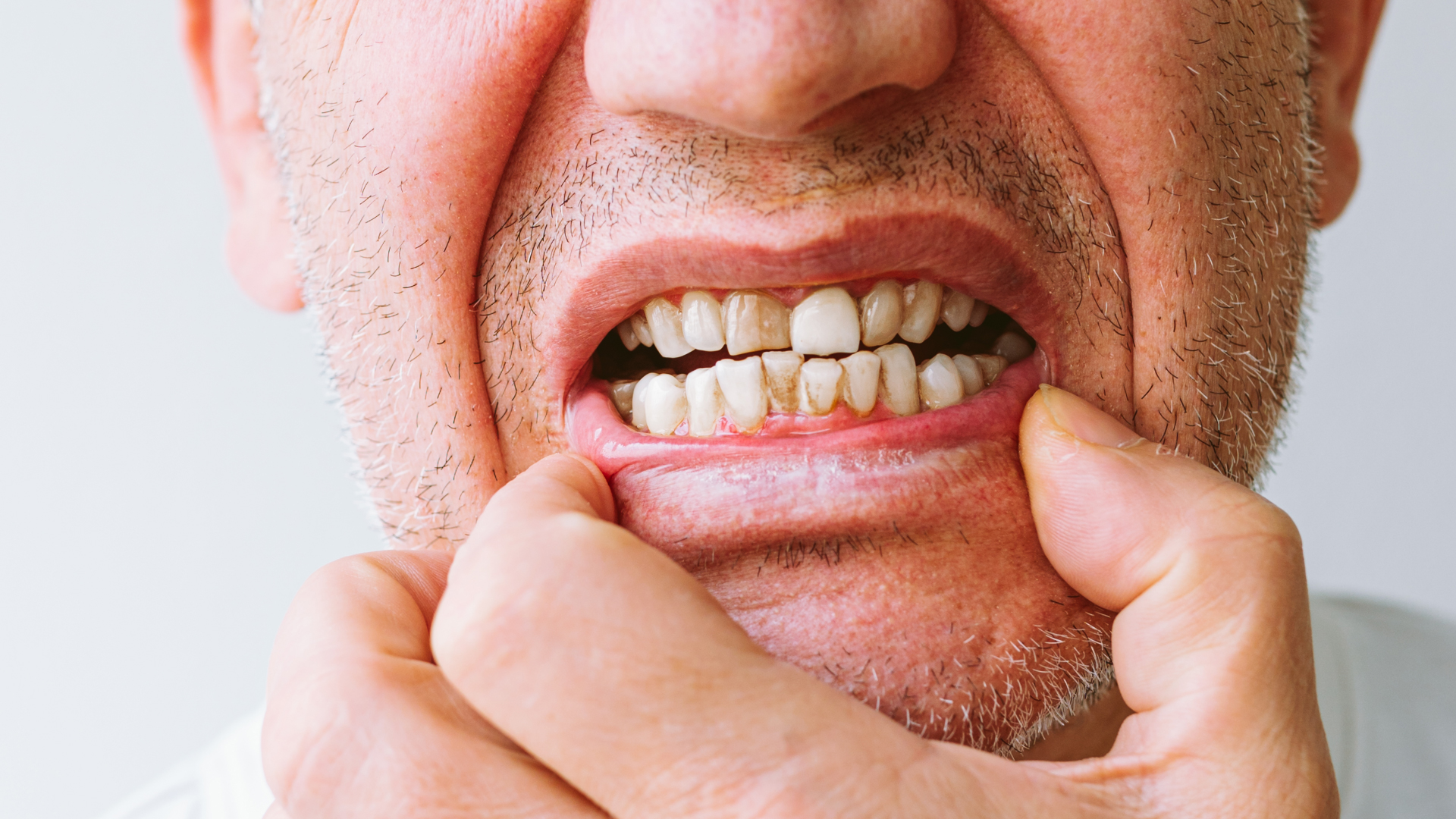
Periodontitis defines the various pathologies that revolve around the periodontium, the intra-oral area including the gums, root cementum and periodontal ligament that encircle the teeth and cover the roots, and the alveolar bone that holds the dental roots. Several types of bacterial pathology can affect the periodontium due to poor dental hygiene encouraged by malocclusion, which encourages the development of tartar, sugar and bacteria that accumulate around the teeth and gradually destroy the periodontium. Unlike tooth decay, periodontitis can develop insidiously without causing pain.
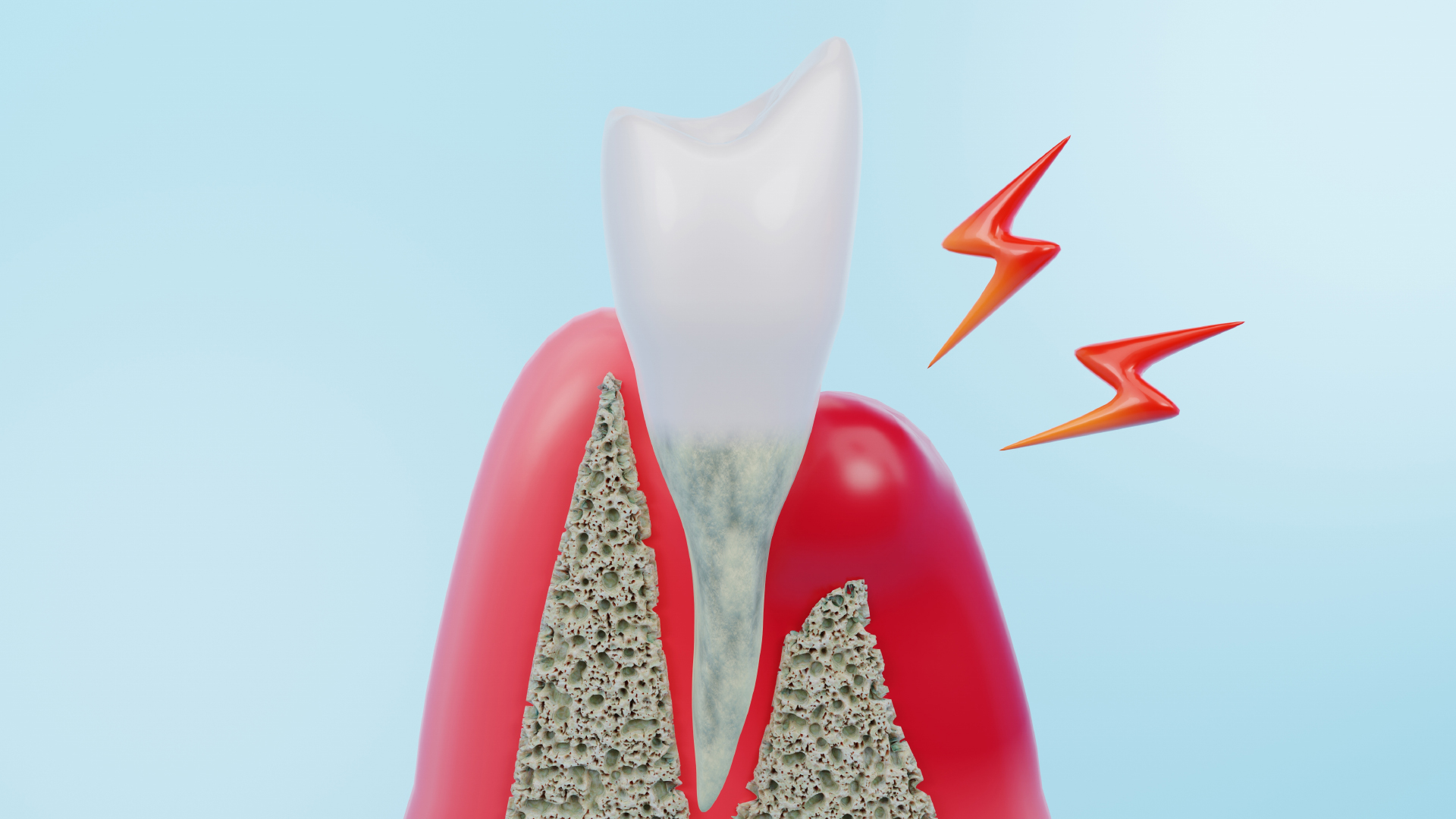
Various periodontal diseases can then develop, affecting the patient’s dental and overall health:
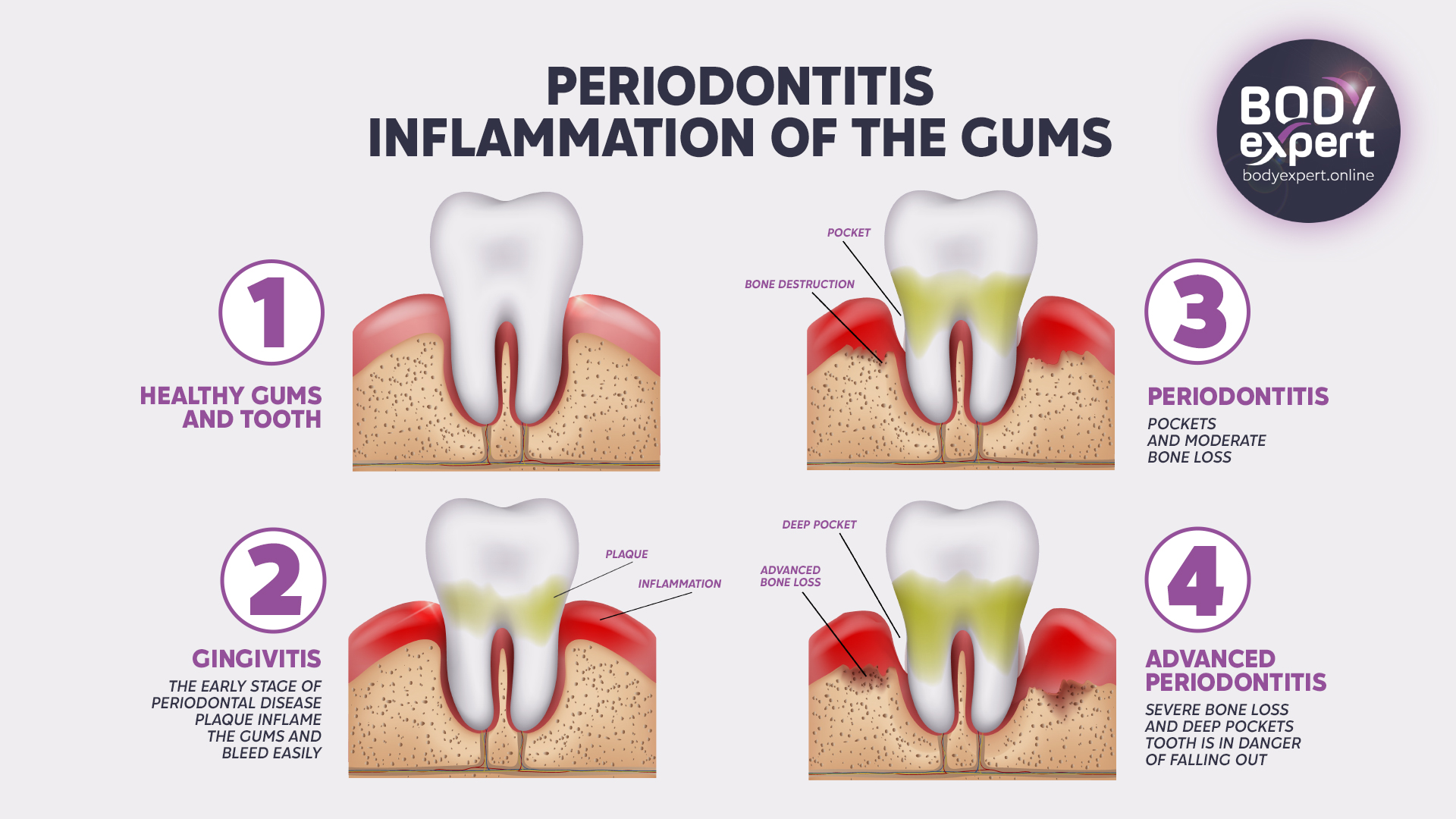
Gingivitis can be the first stage of periodontitis. If treated early, it can prevent periodontitis. Redness, gum sensitivity, bleeding when brushing, swelling around the teeth and bad breath are the symptoms of gingivitis. As soon as gingival pain (inflammation, redness, etc.) appears, it is advisable to consult a dentist, who will be able to take swift action (planing, scaling, etc.) to cure the gingivitis, prevent the onset of periodontitis and impose rigorous dental hygiene on the patient. On the other hand, some periodontitis, particularly apical periodontitis, can occur due to poorly treated decay without necessarily any visible local gingival inflammation.
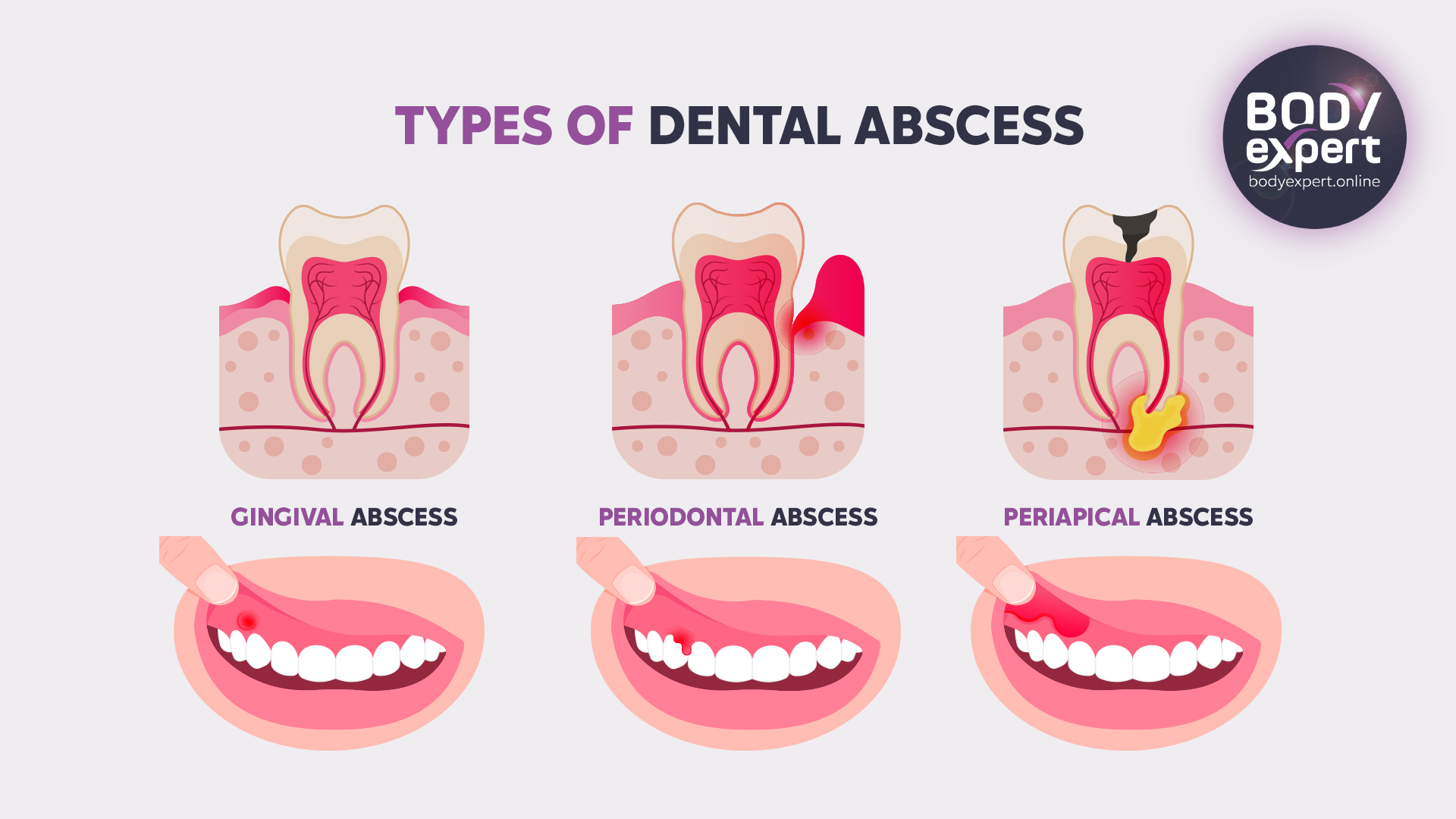
When periodontal disease is diagnosed, first-line treatments that do not involve surgery may be sufficient to cure it. The practitioner will carry out root planing, removing the gum from the tooth’s surface and eliminating the bacteria and tartar attached to the roots. Areas with irregular fillings, marginal overhangs (fillings, crowns, etc.) and interstices will be polished to prevent bacteria from attaching themselves again.
This scaling-surfacing procedure is carried out using mechanical instruments (manual curettes), brushes, and ultrasonic instruments. This minimally invasive procedure spares the tooth’s soft tissues and cementum to prevent gingival retraction and encourage stable attachment.
Two sessions at short intervals are generally sufficient. The patient will then be prescribed the use of dental floss, spacer brushes and/or water jets to ensure optimum teeth cleaning. An antiseptic mouthwash may be administered in the days following the consultation to eliminate bacteria. However, this should not be used long-term, as it affects the production of the good bacteria in the oral biofilm that protects the gum tissue like a film.
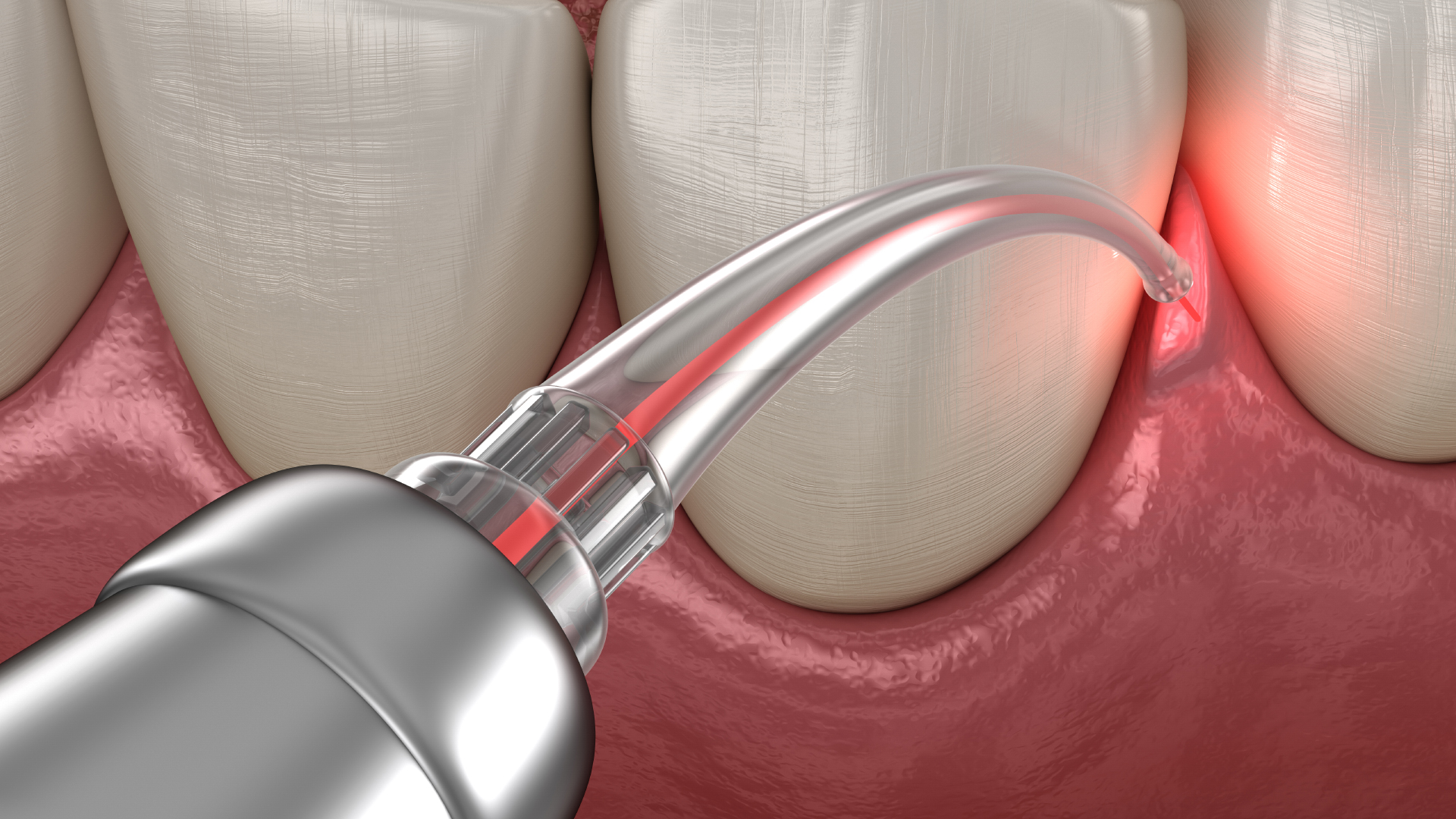
From every point of view, a dental implant is the best solution for replacing a tooth that the dentist has deliberately removed or that has become loose or lost due to advanced periodontitis and when other tooth-preserving treatments are impossible. When a bone graft is not necessary, a dental implant can be placed immediately after the tooth has been extracted. Consisting of a 10 to 15-mm shaft (except for special implants) made of biocompatible material (titanium, zirconia), the implant is screwed in place of the missing tooth root. It serves as an anchor point for a dental prosthesis.
To allow the bone to colonise the implant, 2 and 3 months are required before fitting the dental prosthesis attached to the implant. This crown replaces the original tooth identically. Suitable for all adult patients, the implant will preserve the bone without affecting the neighbouring healthy teeth and allow the patient to chew and speak normally again.
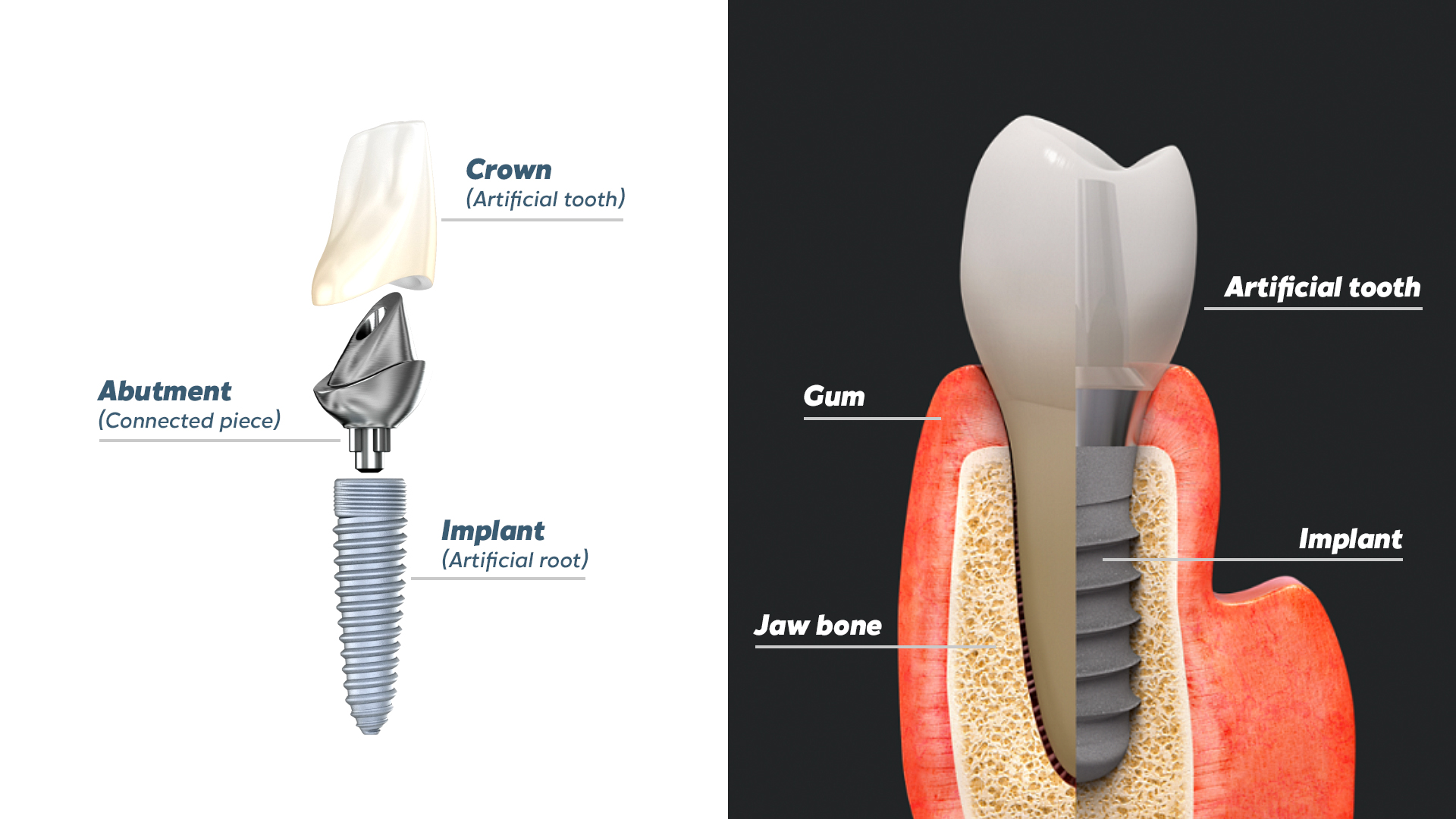
Carried out under local anaesthetic, this surgical procedure involves cleaning up the hidden parts of the tooth after opening up the gum using flaps to lift the gum and expose the tooth and its root and cleaning and scaling the infected areas. Very effective, this procedure will be chosen if the results of a first-line treatment are insufficient or if the dentist considers that the damage to the supporting tissues is too deep. The flaps are then sutured using absorbable sutures. After a few days of healing, the patient should use a soft-bristled toothbrush to avoid damaging the teeth and gums. An antiseptic mouthwash will be prescribed for a week to avoid the risk of infection. Following this treatment, the patient may feel some teeth moving or have tooth sensitivity to cold or heat, a normal reaction until the supporting tissues have completely healed.
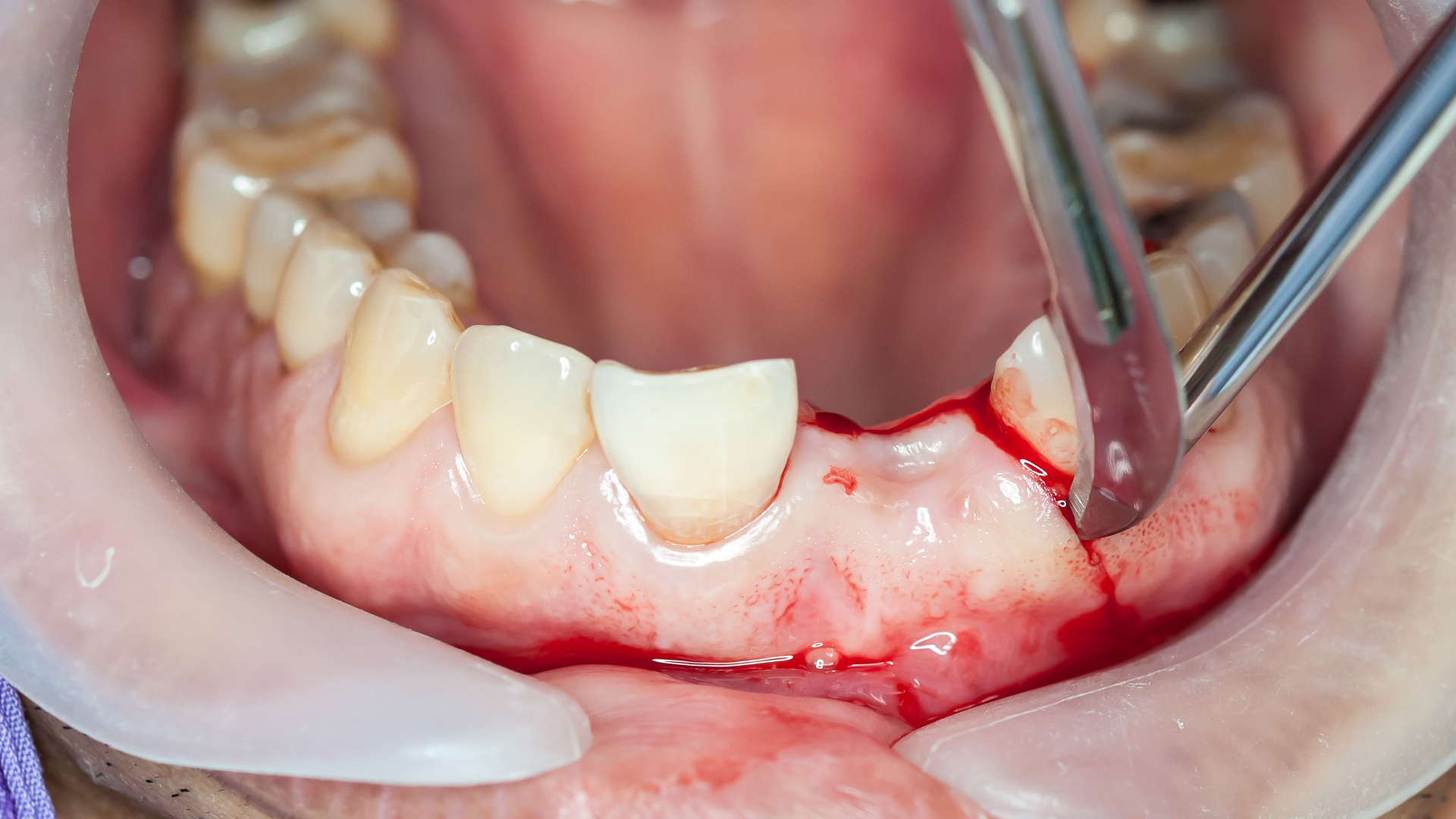
When periodontal pockets remain resistant to non-surgical treatment of periodontal disease and the loss of gum tissue protecting the teeth is too great, the practitioner can use various gingival grafting techniques to restore the tooth’s support structures – cementum, ligament, jawbone – using membranes or bone substitutes to encourage periodontal tissue regrowth. This type of treatment is envisaged, provided the patient has excellent dental hygiene and is free from gum inflammation. Thanks to new microsurgery techniques combining sanitation flaps and micro-sutures, the periodontal zone is regenerated and better stabilised, ensuring better vascularisation. The risk of tooth loosening and caries is thus greatly reduced. However, these complex procedures require much clinical experience and a specially-equipped surgical and technical platform. Other post-operative conditions imposed on the patient: smoking must be banned, as this could cause the graft to fail. And, of course, rigorous dental hygiene must be observed.
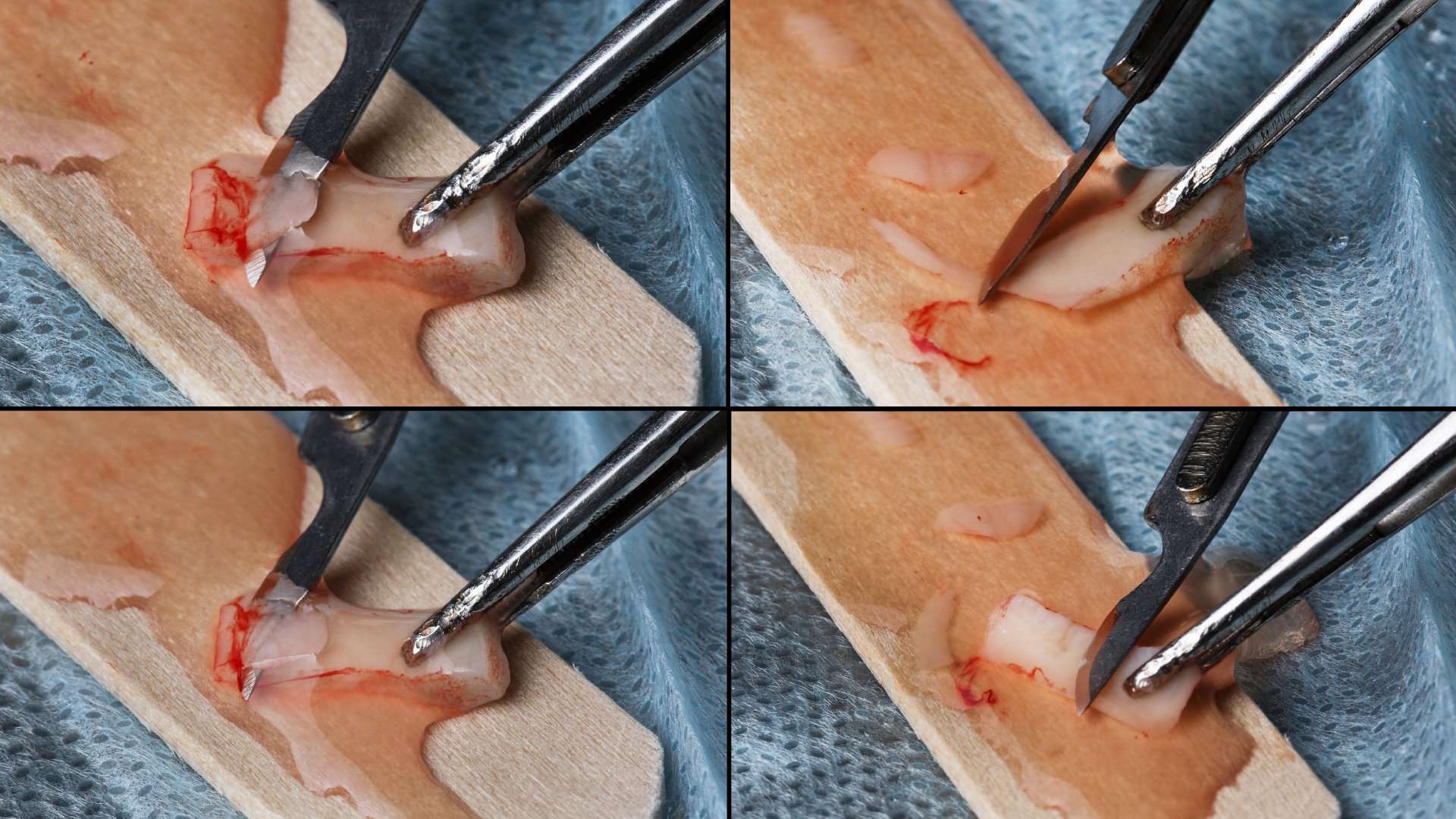
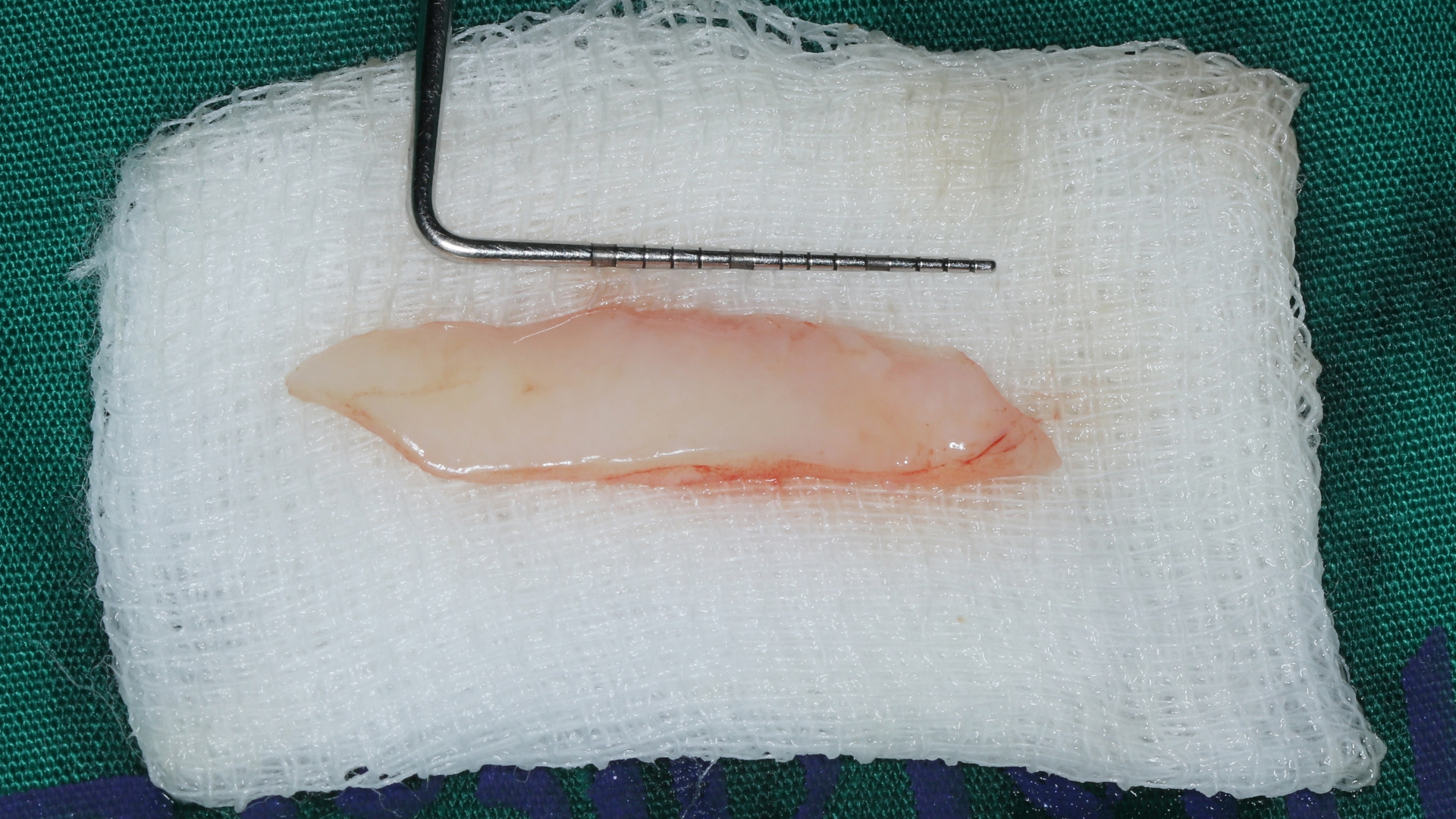
Periodontal disease is one of the main causes of bone loss and tooth loosening, which can lead to tooth loss. The bacterial attack that causes periodontitis irreversibly destroys the bone around the infected tooth. If the tooth has not yet fallen out, and the bone loss observed takes the form of a crater around the lost tooth, a bone-filling graft will make it possible to save the existing tooth. If the tooth loss is irremediable and has to be removed, bone filling may be necessary before the dental implant is fitted to become firmly anchored in the jawbone to provide perfect support for a dental prosthesis. Recreating bone around an existing tooth is more difficult than a dental implant. Pre-implant bone grafting is vital when an old, untreated, edentulous tooth irreversibly reduces the patient’s bone density. In fact, the absence of stimulation of masticatory pressure on the bone leads to a gradual disappearance of the bone.
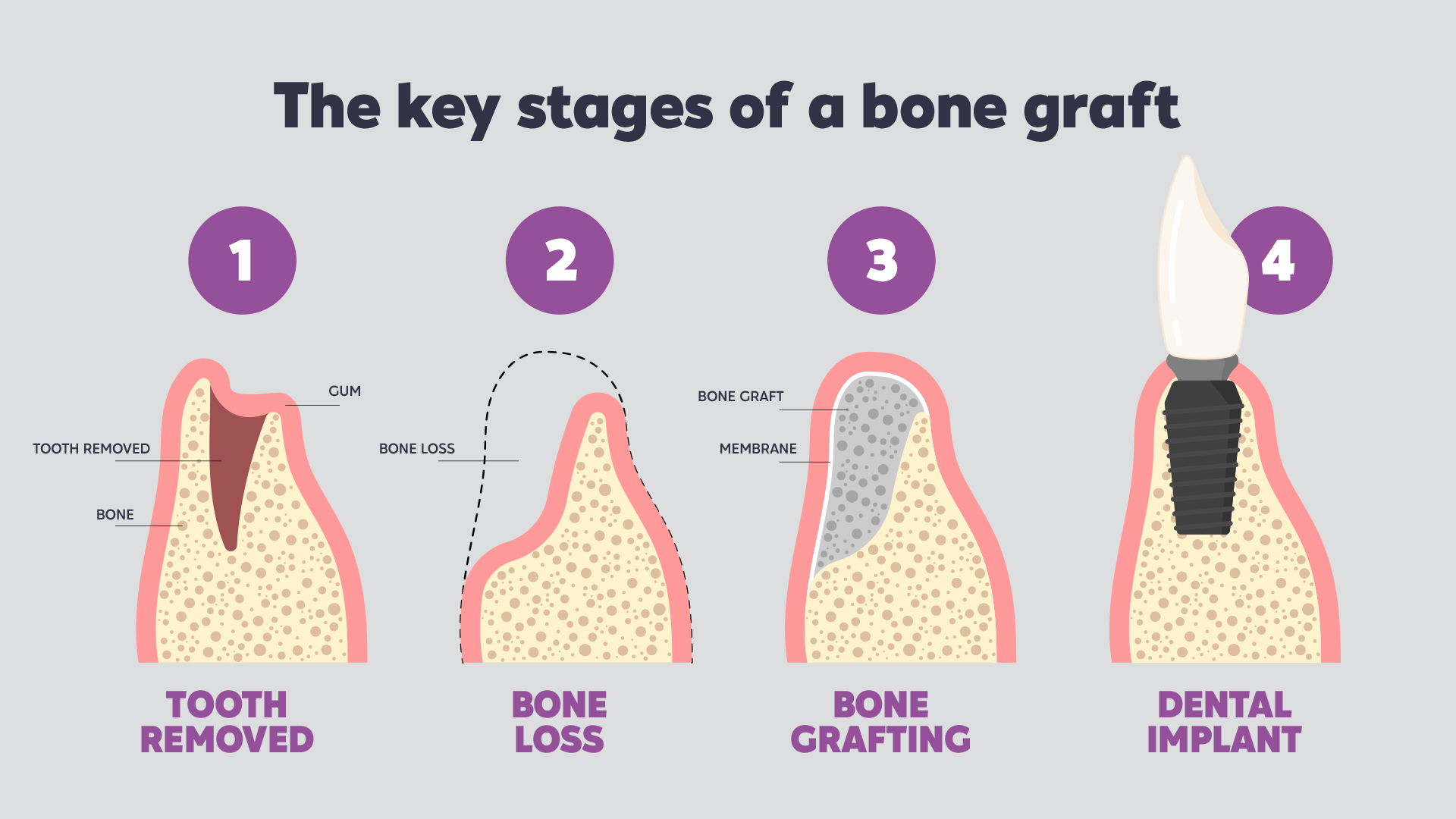
According to researchers specialising in the field, orthodontic treatment undoubtedly benefits patients’ periodontal health. This research also reveals that the absence of orthodontic treatment can encourage the appearance or even worsening of periodontal pathologies. When the fundamental rules of orthodontic treatment are respected – reduction of inflammation, use of appropriate orthodontic forces and optimal oral hygiene – the combination of orthodontics and periodontics offers numerous advantages for restoring good dental health in the long term. Orthodontic relocation has a positive effect on aesthetics and oral health, particularly in realigning teeth, reducing crowding, correcting malocclusions and harmonising the dental arches. These procedures make it easier to brush your teeth.
The aim of orthodontic treatment is to re-establish a healthy and protective oral environment to complement initial therapies, whether first-line or surgical. To stabilise loose teeth, a retainer in the form of a fixed or removable prosthesis may be used. Orthodontic treatment can straighten teeth and/or reopen spaces, correcting problems of alignment or occlusion.
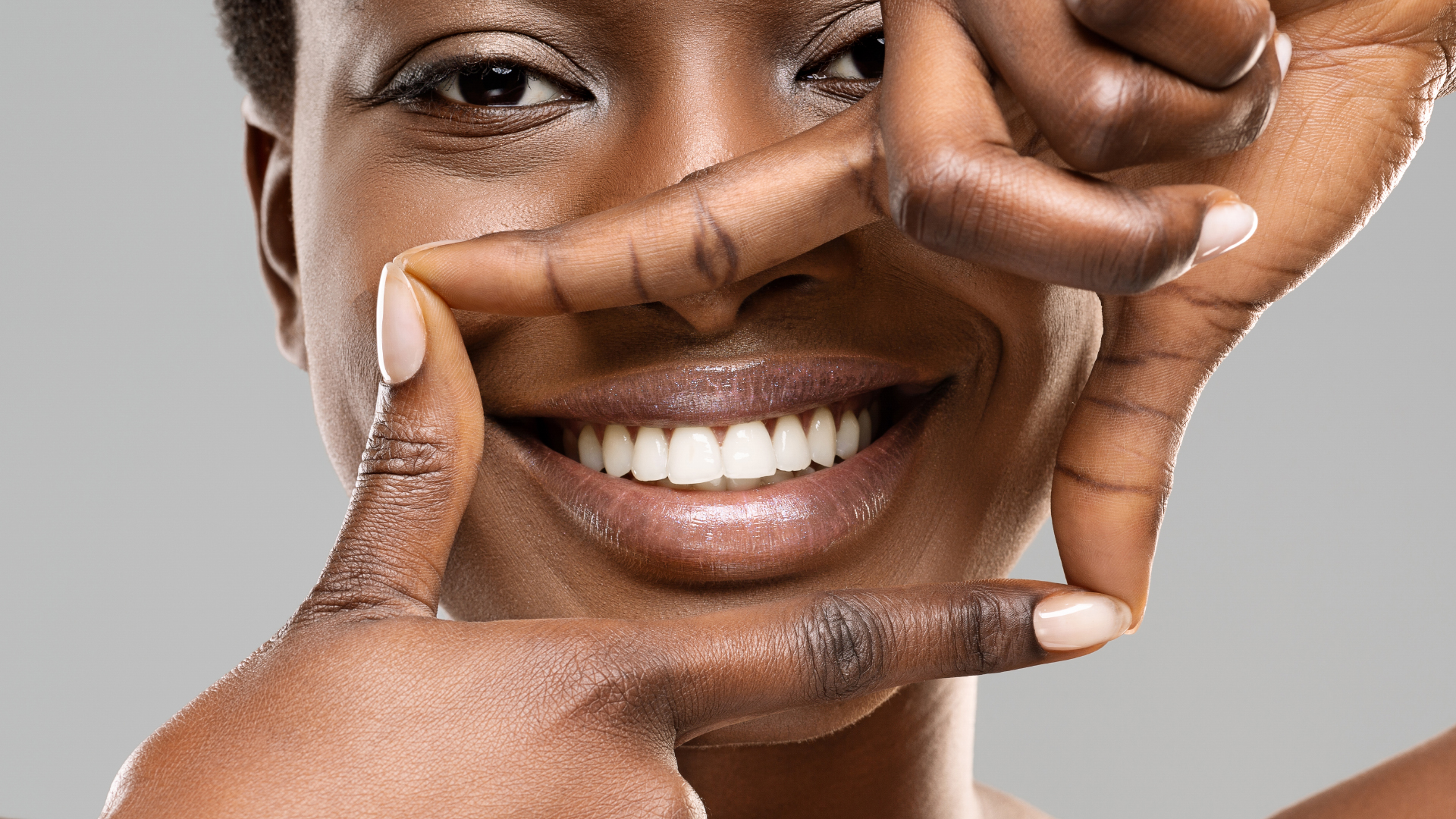
To compensate for the loss of tooth substance following advanced periodontitis that has destroyed or severely weakened the periodontal zone, peripheral crowns are a possible solution. Manufactured from ceramometallic or zirconia with an Emax finish, they restore the teeth to their original aesthetic shape and chewing strength. Thanks to advances in state-of-the-art dental materials, overlays are increasingly being used instead of crowns to compensate for the loss of dental pulp, allowing better adaptation to the patient’s dentition and greater comfort. Self-supporting bridges are also a possible solution, particularly for elderly and partially edentulous patients, but their discomfort and the constraints of use (elocution, cleaning, fragility, etc.) do not offer a permanent solution.
Although not covered by the French health insurance system because they are considered cosmetic, certain restorative treatments can be invaluable in curing and preventing periodontal disease.
This is the case with dental veneers: when teeth are misaligned and difficult to brush, particularly in the case of malocclusion, tartar and plaque build-up is encouraged. Placing dental veneers on the front teeth ensures that the teeth are perfectly aligned, promoting better dental hygiene and the icing on the cake, giving the patient a perfect smile. Several types and brands of dental veneers are available, offering different results. The best dental veneers are made of ceramic, offering a natural, translucent appearance thanks to their thinness, but also being more resistant to stains and offering a longer lifespan (10 to 15 years).
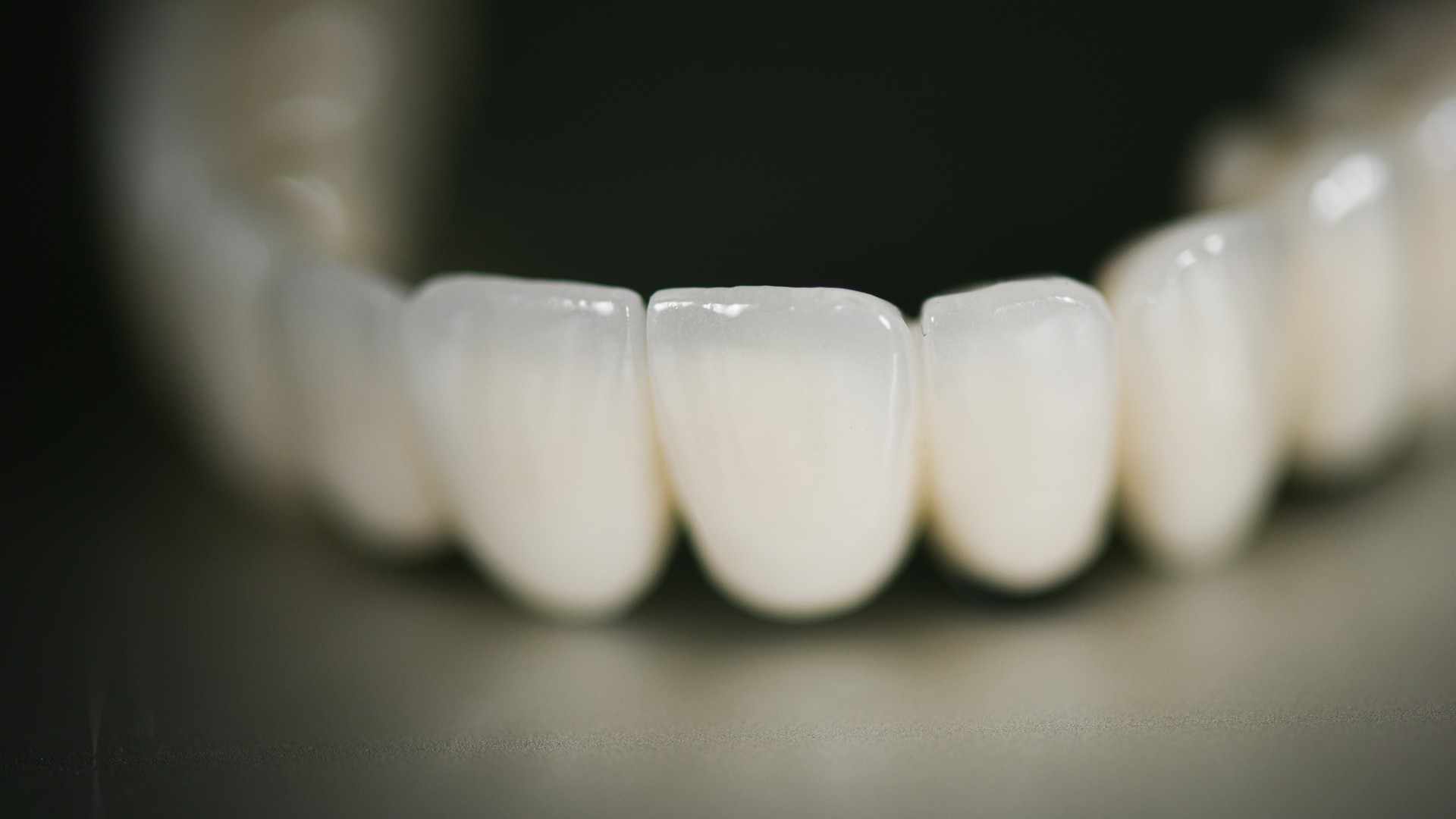
To partially replace a tooth that has been reduced or severely damaged by decay and/or periodontitis but whose root and bone attachment remain healthy, a dental crown is sometimes recommended. It offers a perfect aesthetic result and allows normal chewing to resume.
Rigorous dental hygiene, including using a soft toothbrush, dental floss and/or a dental jet to clean the dental interstices thoroughly, is fundamental. It is advisable to have a dental check-up at least once a year to remove tartar and identify any cavities. After periodontal treatment, a check-up x-ray in the following months will ensure the surgical treatment has succeeded. The aim is to establish long-term follow-up to maintain periodontal health after the initial therapies and prevent recurrences.
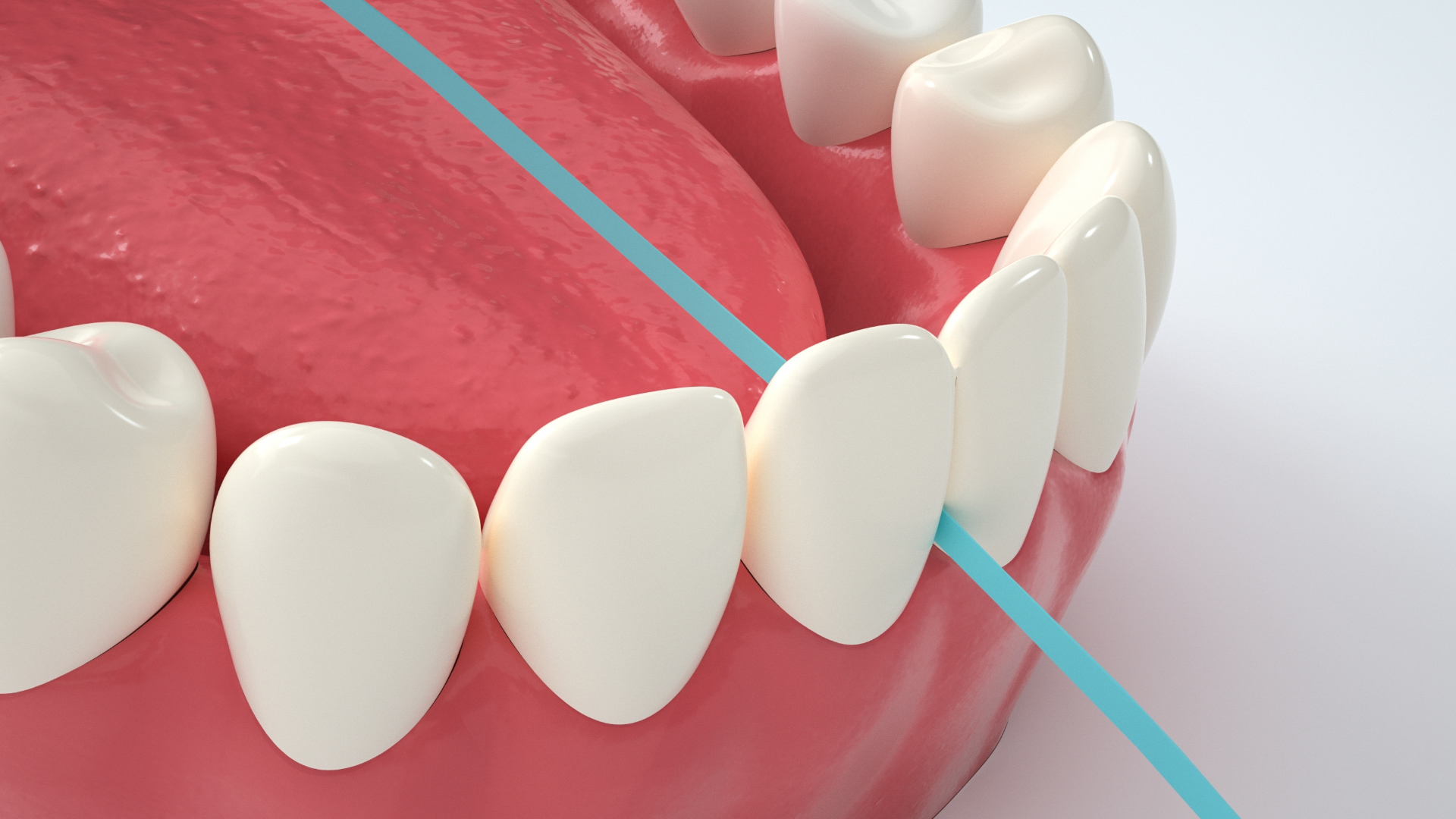
When periodontal disease is diagnosed as a result of constant or sudden pain, the first response from dental practitioners is not necessarily the most expensive. This is the case for first-line treatments, which must be carried out at the dentist’s usual practice and which are reimbursed up to 70%, with a limited reimbursement ceiling.

But when it comes to treating advanced periodontal disease, threatening the integrity of one or more teeth or requiring the extraction of one or more teeth, with complex periodontal treatments, including restoration flaps, bone grafts or implants, prosthetic or aesthetic restoration treatments such as dental veneers, there is no cover from the Assurance Maladie. If you don’t want to forego essential treatment, and unless you have an excellent mutual insurance company that covers dental care well, a dental trip abroad can significantly reduce the bill, by between 40% and 80% depending on the destination and the dental clinic.
Over the last twenty years, Turkey, along with Istanbul and Antalya, has built up a reputation for excellence in the field of medical and beauty tourism, attracting hundreds of thousands of patients from all over the world every year. According to Turkish Ministry of Tourism figures, over 200,000 foreign travellers have come to Turkey for dental treatment. As many Body Expert patients can testify, they are reassured by the skills and experience of its dental surgeons, trained at the best dental universities and using the latest technology available, and by the speed of treatment and the excellent welcome, hygiene and service offered by the dental clinics. Par can offer dental treatment with unbeatable value for money in a very short space of time, with prices 60-80% cheaper than in Europe, including travel costs. However, preparing your trip carefully is vital, taking advantage of the best legal protection cover and choosing the right partner. Unpleasant surprises are always possible.
